![]()
Farish had talked of situations “so full of all qualities of
loveliness and purity, such new regions of high thought and feeling?
that to the dwellers in past days it should seem rather the production
of angels than of men.” Madras Christian Instructor and Missionary
record (1844).
The Baroque music in the forests of Bolivia, did indeed sound like the
production of angels. Cecilia had brought us all over during the “VI
Festival Internacional de teatro Santa Cruz”. The church itself was
quite beautiful. Helmut’s comment, “At least the church did something
good”, rang in my ears. I see this beautiful land, one of the few in
South America where the indigenous people haven’t been largely
decimated. I see extermination of their religion, their language and
struggle to see how it was all dressed as civilization. I see the
ornate walls of the grand church and listen to the untold stories
screaming to be heard.
Thousands of miles away, a young Bangladeshi photographer Munem Wasif,
gives up the ‘respectable professions’ chosen for him and decides to
be a story teller. The third Pathshala alumni to be selected for the
prestigious Joop Swart Masterclass tells an ordinary story. One of his
growing up. But at a time when the only stories told are those told by
the conqueror, it is time the story tellers changed.
Shahidul Alam
Santa Cruz, Bolivia
30th April 2007
I had arrived to this world at just past noon on an overcast, rainy day some seventeen years before the new millennium. Following my birth, my mother moved back to our ancestral home in provincial Comilla. My real growing up was to start there. This move would lay the foundations of the person I would become. Like any other boy of my age, growing up in a small town, everyday carefree life coupled with a complex web of friends and family made up my world. Meandering over wishful thoughts of flying airplanes, riding bikes at will, kicking battered footballs under the incessant rain, and later trying to make excuses to my mother were all an integral part of this time. I grew up with cousins and uncles all around me. This developed a close-knit relationship with my family and deeply instilled in me a feel of collective being. After completing my middle schooling in Comilla, as I was pushed between the honking horns and blinding lights of the capital, Dhaka, I left behind the easy life of small town settings, but something came with me. A sense of belonging to the people, the place, the innocuous values of small town life ? the closeness of it all ? came bundled with the person that was to start a new journey in the city. It was hard. The days of pace and nameless acquaintance was fixated with forgetfulness. Homesick for my mother and sister, the nights were crossed with bouts of restlessness. To make the best out of such a turbulent time, my uncle admitted me to a photography course. While the medium had not appeared in any formal mode before, growing up in a visually explosive country with riots of colors all around, it instantly grabbed my attention. In fact, more so than the formal academics, which experienced a roll of turbulence along this time, as days of frenzied fermentation of variant frames were followed by equally fantastic nights of soul searching within those ?newly discovered? worlds. Sounding as tacky as one might, but seeing everything through a new pair of eyes is how I felt! Even before I had started to look with my own eyes at the unsettling, new environment of the city revolving around me, I was peering down a looking glass that was to be the lens. It gave me a wider, yet probing look, and one may say, meaning, to the lives in trepid spin within and beyond my periphery. The common place humdrum of daily activity suddenly imposed a rather ?larger than life? frame upon me. Call me idealistic but to me life must hold more meaning than just a fat paycheck, the proverbial suburban home, and the prescribed way to the promised, prescribed happy life. To me exploring my dreams ? the ones that were born and not imposed ? and realizing it ? by pushing the very boundaries of reality and imagination ? as far as possible is the path to self-actualization. I often ask myself ? ?do we try to create a mirror world when we take a picture??, ?do we want to see something that might have passed us by otherwise?? Well, I think we do. And I have come to believe that that is the singular, yet important, reason I am drawn to photography. It gives me time and space to a stand, maybe even suspended in motion, to search and delve into myself and my surroundings. Till now, and in the coming frames, I explore the dreams that are yet to be born.
Munim Wasif. Dhaka




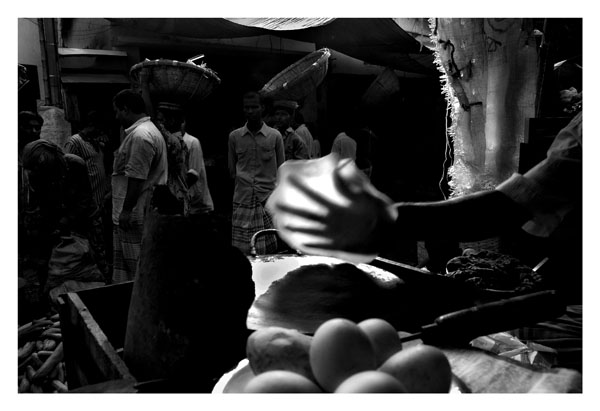
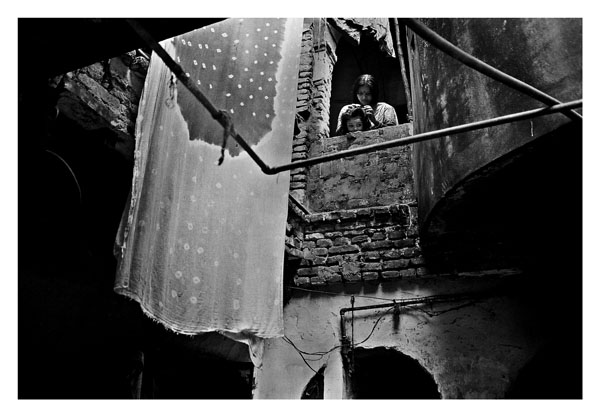
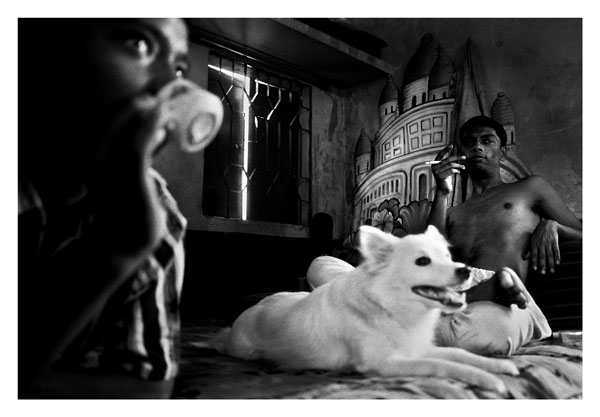
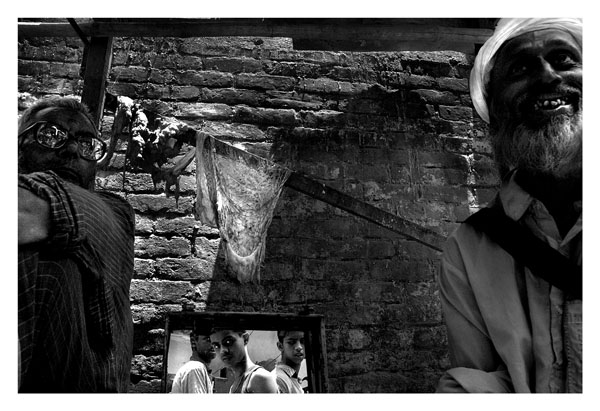

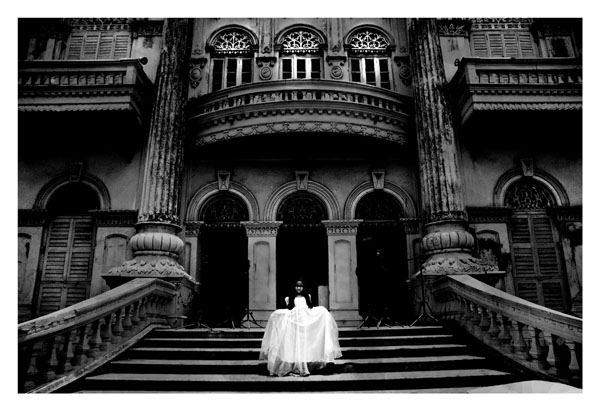
2 thoughts on “Old Dhaka-Belonging”
Leave a Reply
You must be logged in to post a comment.

Great and very interesting personal writing, and as always, wonderful photos 🙂
Ya Haqq!
The photographs are, no dout, superb in idea and composition with the smell of the very special old Dhaka that I have left some 35 years back.